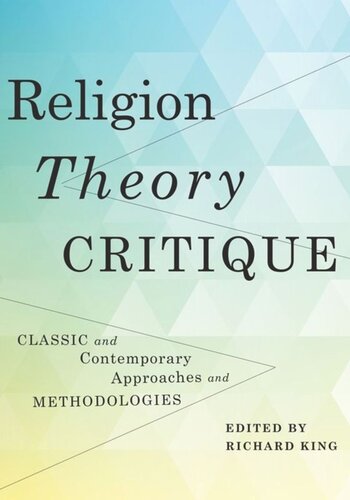

Most ebook files are in PDF format, so you can easily read them using various software such as Foxit Reader or directly on the Google Chrome browser.
Some ebook files are released by publishers in other formats such as .awz, .mobi, .epub, .fb2, etc. You may need to install specific software to read these formats on mobile/PC, such as Calibre.
Please read the tutorial at this link: https://ebookbell.com/faq
We offer FREE conversion to the popular formats you request; however, this may take some time. Therefore, right after payment, please email us, and we will try to provide the service as quickly as possible.
For some exceptional file formats or broken links (if any), please refrain from opening any disputes. Instead, email us first, and we will try to assist within a maximum of 6 hours.
EbookBell Team

4.0
56 reviewsReligion, Theory, Critique is an essential tool for learning about theory and method in the study of religion. Leading experts engage with contemporary and classical theories as well as nonwestern scholarship. Unlike other collections, this anthology emphasizes the dynamic relationship between "religion" as an object of study and different methodological approaches and openly addresses the question of the manifold ways in which "religion," "secular," and "culture" are imagined within different disciplinary horizons. This volume is the first textbook which seeks to engage discussion of classical approaches with contemporary cultural and critical theories.
Contributors write on the influence of the natural sciences in the study of religion; the role of European Christianity in modeling theories of religion; religious experience and the interface with cognitive science; the structure and function of religious language; the social-scientific study of religion; ritual in religion; the phenomenology of religion; critical theory and religion; embodiment and religion; the impact of colonialism and modernity; theorizing religion in terms of race and ethnicity; links among religion, nationalism, and globalization; the interplay of gender, sex, and religion; and religion and the environment. Each chapter introduces the topic, identifies key theorists and issues, and respects the pluralistic nature of the scholarship in the field. Altogether, this collection scrutinizes the explicit and implicit assumptions theorists make about religion as an object of analysis.